
William Goldman was an American novelist, playwright, and screenwriter. He first came to prominence in the 1950s as a novelist before turning to screenwriting. He won Academy Awards for his screenplays Butch Cassidy and the Sundance Kid (1969) and All the President's Men (1976).

Harold Robbins was an American author of popular novels. One of the best-selling writers of all time, he wrote over 25 best-sellers, selling over 750 million copies in 32 languages.

Marathon Man is a 1974 conspiracy thriller novel by William Goldman. It was Goldman's most successful thriller novel, and his second suspense novel.
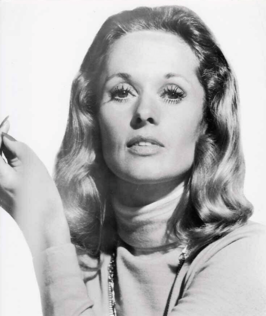
Nathalie Kay "Tippi" Hedren is an American actress, animal rights activist, and former fashion model. She achieved worldwide recognition for her work in two of Alfred Hitchcock's classics: The Birds (1963) and Marnie (1964). She is recognized as one of the most famous 'Hitchcock Blondes' and is now one of the last surviving stars from the Golden Age of Hollywood cinema.
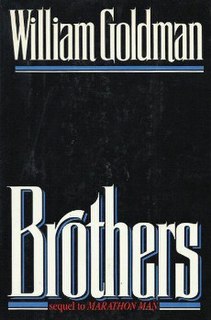
Brothers is a thriller novel by William Goldman. It is the sequel to his 1974 novel Marathon Man and is Goldman's final novel.

The Princess Bride: S. Morgenstern's Classic Tale of True Love and High Adventure, The "Good Parts" Version is a 1973 fantasy romance novel by American writer William Goldman. The book combines elements of comedy, adventure, fantasy, drama, romance, and fairy tale. It is presented as an abridgment of a longer work by the fictional S. Morgenstern, and Goldman's "commentary" asides are constant throughout. It was originally published in the United States by Harcourt Brace, then later by Random House, while in the United Kingdom it was later published by Bloomsbury.

Soldier in the Rain is a 1963 American comedy buddy film directed by Ralph Nelson and starring Jackie Gleason and Steve McQueen. Tuesday Weld portrays Gleason's character's romantic partner.
Elliott Kastner was an American film producer, whose best known credits include Where Eagles Dare (1968), The Long Goodbye (1973), The Missouri Breaks (1976) and Angel Heart (1987).

Harper is a 1966 American Technicolor mystery film in Panavision based on Ross Macdonald's 1949 novel The Moving Target and adapted for the screen by novelist William Goldman, who admired MacDonald's writings. The film stars Paul Newman as Lew Harper. It is directed by Jack Smight, with a cast that includes Robert Wagner, Julie Harris, Janet Leigh, Shelley Winters, Lauren Bacall and Arthur Hill.
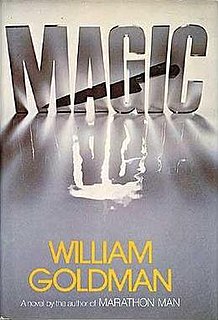
Magic is a psychological horror novel written by William Goldman. It was published in the United States in August 1976 by Delacorte Press. In 1978 Richard Attenborough directed a feature film adaptation of the story that starred Anthony Hopkins and Ann-Margret.
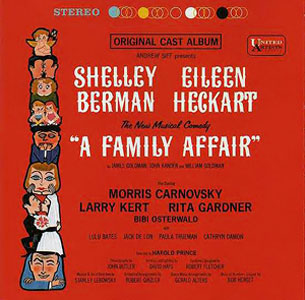
A Family Affair is a musical with a book by James Goldman and William Goldman, lyrics by James Goldman and John Kander, and music by Kander. This was Kander's first show and his only one written without Fred Ebb in Ebb's lifetime.

The Season: A Candid Look at Broadway is an account of the 1967–1968 season on and off-Broadway by American novelist and screenwriter William Goldman. It originally was published in 1969 and is considered one of the better books ever written on American theater. In The New York Times, Christopher Lehmann-Haupt called the book “Very nearly perfect...It is a loose-limbed, gossipy, insider, savvy, nuts-and-bolts report on the annual search for the winning numbers that is now big-time American commercial theatre.”
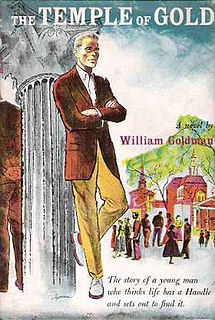
The Temple of Gold is a 1957 novel by William Goldman. It was Goldman's first novel, and launched his career.

Your Turn to Curtsy, My Turn to Bow is a 1958 novel from William Goldman.
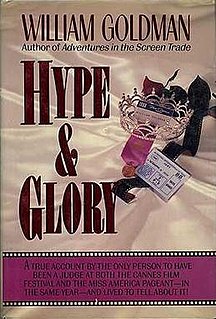
Hype and Glory is a 1990 memoir from William Goldman which details his experiences as a judge at the 1988 Cannes Film Festival and Miss America Pageant. The book includes an interview with Clint Eastwood and a profile on Robert Redford. Much of the book contains autobiographical material from Goldman, including accounts of his recent divorce.
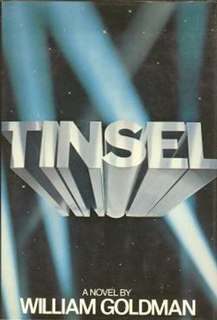
Tinsel is a 1979 novel written by William Goldman. It was the third of a four-book deal he had with Delacorte Press after Marathon Man and Magic. He called it "my Hollywood novel."

Heat is a 1985 novel by William Goldman about a soldier of fortune in Las Vegas.
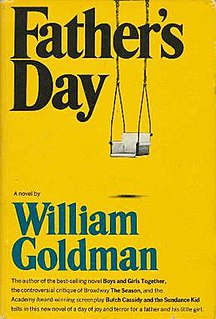
Father's Day is a 1971 novel by William Goldman. It is a sequel to The Thing of It Is... and revolves around a day in the life of now-divorced Amos McCracken as he looks after his daughter for a day.
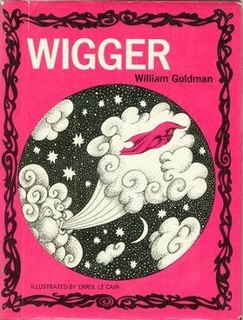
Wigger is a 1974 novel written by William Goldman about a young girl who loses her blanket. The book was named for a blanket that belonged to Goldman's daughter Susanna. Goldman later said the novel was one of his favourite works, and that writing it was a "wonderful experience... compared to what it's like ordinarily." The book was voted a Book of the Year by the Child Study Association, however, Goldman, who died in 2018, never wrote another children's book. Wigger has since fallen out of print and is considered rare to book collectors; this was in part due to the book's title. The book is also tied up in rights revision issues, like most of Goldman's early published works, since his death.

No Way to Treat a Lady is a 1964 novel by William Goldman.



















